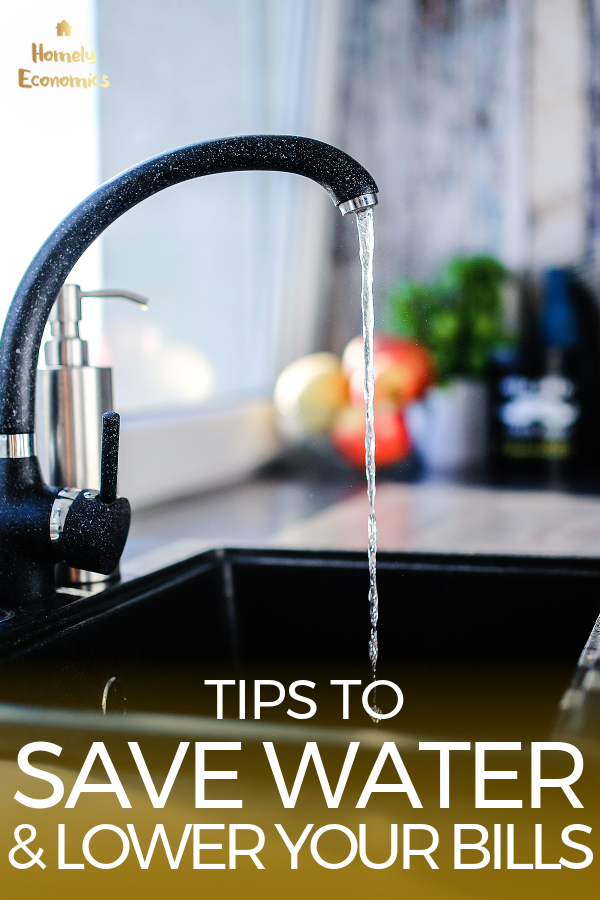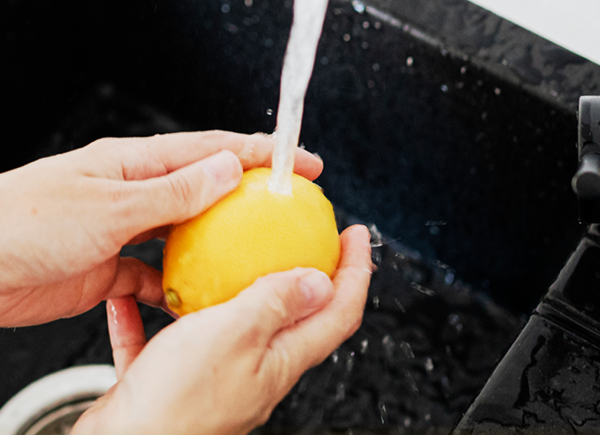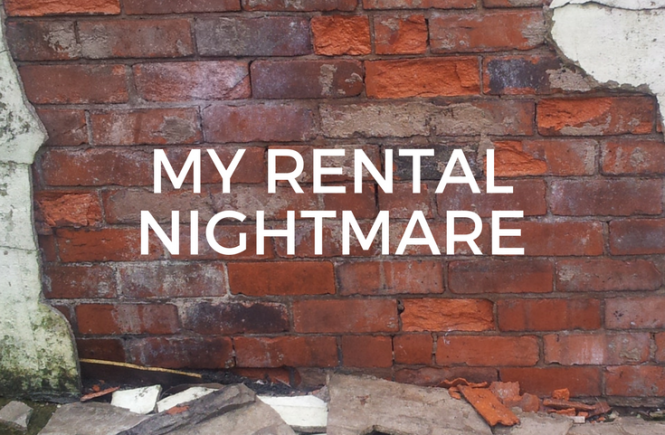This post contains affiliate links, marked by an *
Tips to get lower water bills
Water bills are a trickier topic than other utilities, as not all of us are on water meters, and there simply isn’t any market competition, so no opportunity to switch. Whilst it might seem as though homeowners are over a (water) barrel, there are a few things we all can do to cut down on our water bills.
Why bother saving water?
Even if you’re not on a meter and don’t feel the pinch, it’s worth doing for the fact that lower water bills mean lower bills in general.
Besides that, it’s good for the environment!
How lower water bills translate to lower energy bills
If you reduce your water usage to reduce your water bill, you’ll find yourself with a lower volume of water to heat. It’s as simple as that – less water to heat means less gas or electricity used for heating.
A lot of the water we use in our homes needs to be heated before running down the drain – for washing dishes and for washing ourselves, or even for cooking or making a brew. If you start to adjust your habits to use less water, you will eventually train yourself to use less energy overall.
About water bills
Water bills are made up of a charge for supplying fresh water as well as a charge for removing water – it has to go somewhere, right? If you aren’t connected to mains drainage, then you won’t be charged for drainage – you’ll have to pay for this separately.
Be sure to point this out to your water supplier as I was once sent a cheeky bill after moving house based on water supplied to and removed from my previous property, despite having had a septic tank for the six years I’d lived there!
For those without mains drainage
On top of that, if you’re living in the countryside or about to move there, there’s a chance you may find yourself in a home that’s not connected to mains drainage, but to a septic tank (or similar) instead.
In this case, you definitely need to reduce the amount of water you use – the more water that goes into your tank, the more wear and tear to your system and the more callouts you’ll need to make to have it emptied!
Practical tips to cut your water bills
Check to see if you’d be better off on a water meter
The standard advice is that if you’re living in a house with more bedrooms than people, then you might be better off on a meter.
If that applies to you, and you’re already doing everything you can to save water, then switching to a water meter would be a good move. If you’re a big family, you may be better off without it, but of course try to save water anyway.
Cut down the flow
If you’re starting from scratch, installing a new bathroom, then it’s easy to choose low-flush toilets and aerating shower heads and taps. Maybe you might go a bit further and consider installing a urinal if your household is overwhelmingly of the male variety!
However, you can also do a fair bit to reduce your water usage if you’re working with what you’ve already got. You can retrofit your taps with tap aerators* to effortlessly reduce the amount of water that comes through the tap and do the same with shower heads, and put a plastic bottle full of water into your toilet tank to reduce the amount that fills it, and it then flushed.
Make sure to get any leaks sorted as soon as possible too.
For those without mains drainage:
It’s particularly essential to fix leaking taps and toilets – all that extra water going into your septic tank will need to be emptied, and that’s just a double waste of money.
Get free water-saving gadgets
Check out your water company’s website for free gizmos to help you save water! I did this when researching this post and ordered a load of freebies from United Utilities.
Keep a flask next to the kettle
If you’re like me, you’re probably gasping for a cuppa (or a brew if you live up my way) no more than a couple of minutes after the last one’s done.
You’ve probably heard the advice about only filling the kettle up as much as you need to (to save energy), but we know it’s not always easy to crack that habit, especially if you’re in a hurry.
If you keep a flask next to your kettle and fill it up with the leftover water once it’s boiled, then you can either save it for:
- Another brew (tea purists who hate anything but fresh-boiled water may scream at this)
- Cooking your dinner – already hot water won’t need as long to come to the boil and you won’t need to run the tap again!
- Washing up – again, already hot.
Keep a grease container by the sink
Keep a container handy near the sink to pour liquid fats and oil into instead of pouring it into the kitchen sink.
What does this have to do with water? Well, we should all be doing this anyway, but in terms of septic tank owners, just think about the damage you’ll be doing to your own drains and your tank with your home-grown fatberg… damage that you’ll have to pay to fix.
You’ll also probably end up using copious amounts of hot water trying to clear your drains, so it’s a good idea all around.
Pee in the compost heap
Yep, I said to pee in the compost heap.
If you live in a flat, then I take it back… but if you have a compost heap and enough privacy, then go for it. Let’s face it, you’ll probably get away with this if you’re a guy, and not so much otherwise.
Let’s take this a bit further and think about composting toilets…
Compost toilets
Composting toilets* are a lot further on than the average person might think!

I grew up visiting friends who still had pit toilets and I can tell you that from personal experience, I have no misguided sense of nostalgia when it comes to sewerage. Those pit toilets were terrifying.
Terrifying!
Yet I would have a go at a modern, high-tech compost toilet – if we ever have the opportunity to install a second toilet at ground level, I will definitely look into it. Convincing my husband might be near impossible, but I would try my best!

Reuse grey water
Grey water – runoff from showers, baths, the kitchen sink, washing machines and dishwashers – can be recycled for watering plants, flushing toilets, etc. Setting up a closed system for this is a bit beyond me, but I reckon there are many clever people out there who have done this in their own homes.
It’s easy to set up a system to collect rainwater and filter it using a grey water filter*, and after the initial outlay for a filter and water butt, you’re away.
If it’s yellow…
You probably get the point. If you can bear it, don’t flush after a wee.
How long you can let it go for depends on your tolerance levels, I suppose. Just don’t forget the “if it’s brown, flush it down” bit, and double-check on the state of the loo before guests pop in!
Don’t run the tap unnecessarily
This is a catch-all tip – brushing your teeth, washing the dishes, washing vegetables – can all be done using a bit less (or for some of us, a lot less) water.
Save through the way you pay
Often, you may get a tiny discount for signing up to pay by direct debit – it’s not huge, but still it may be worth grabbing. I get £5 off per year this way.
Bank accounts that offer cashback on household bills will give you an extra saving on your overall bill as well.
Over to you…
I’m sure I’ll be updating this list with new tips to get lower water bills as I come across them, and I’d love to hear yours in the comments below!






1 Comment
Great tips – some of these hadn’t even crossed my mind! I love the idea of keeping a flask by the kettle so you don’t waste boiling water. Cutting water flow will also really help with water bills – you can ask your local plumber about install low-flow toilet flushes and similar replacements in your bathroom.